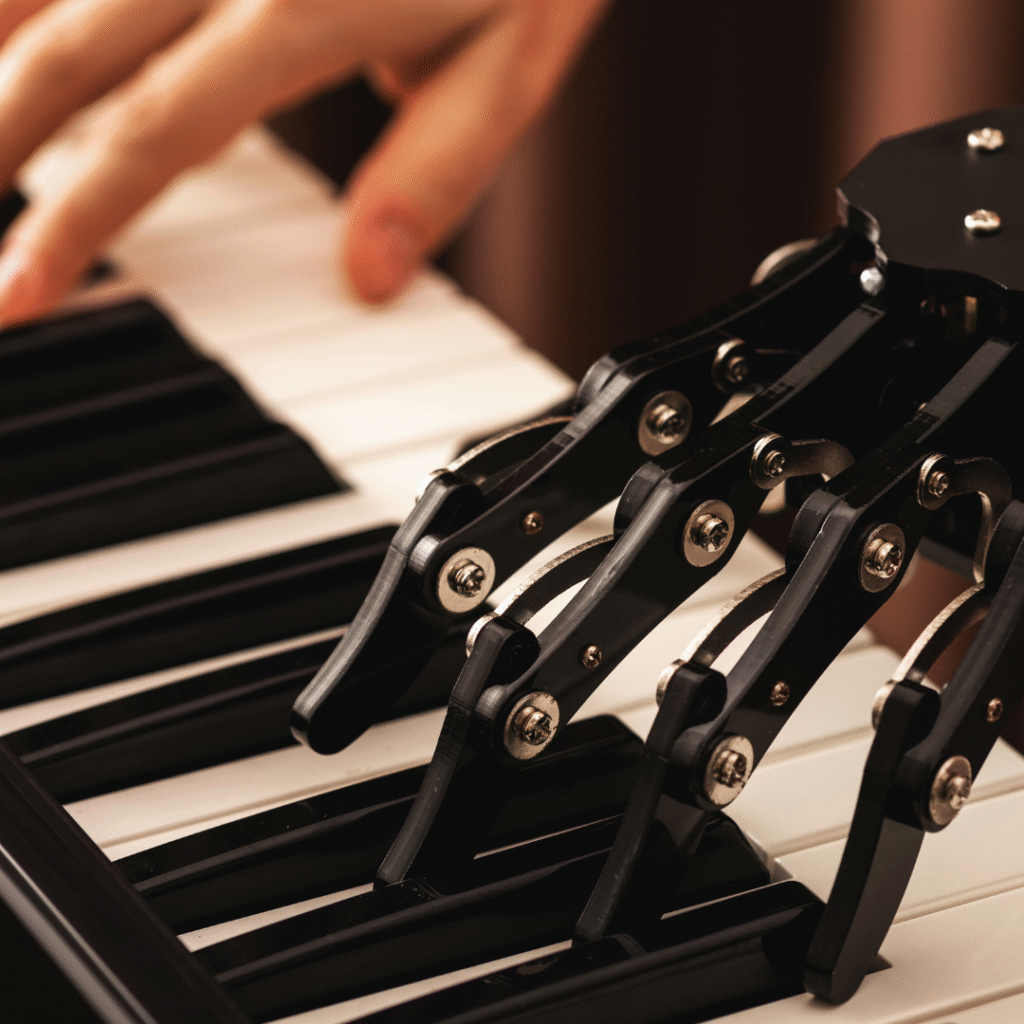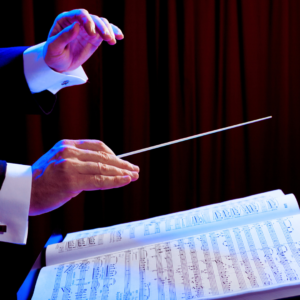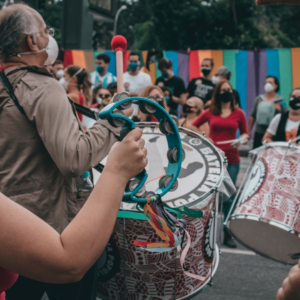Artificial Intelligence is transforming the landscape of music production in profound ways. AI tools are streamlining the creative process, enabling artists and producers to experiment with sounds and generate music more efficiently than ever. This shift not only enhances productivity but also opens up new avenues for innovation in music creation.
As technology continues to advance, AI-driven software is becoming an essential part of the music production toolkit. They assist musicians in composing, mixing, and even mastering tracks, boosting the quality of the final product while reducing the time spent on technical tasks. This integration empowers artists to focus more on their creative visions.
The influence of AI on music production is evident across genres, from pop to electronic and beyond. Emerging artists now have access to sophisticated tools that were once reserved for top studios, democratizing music creation and changing the industry dynamics. The creative possibilities are expanding rapidly as more musicians embrace these technologies.
Evolution of AI in Music Production
The evolution of AI in music production highlights significant milestones that have shaped the industry. Key historical developments and contemporary tools illustrate AI’s transformative influence on modern music creation.
Historical Milestones and the Beatles’ Influence
The pioneering work of The Beatles in the 1960s marked a significant turning point in music production. They embraced innovative studio techniques, such as multi-track recording and tape manipulation. This laid the groundwork for future advancements, including AI technologies.
During this time, the rise of computer music began, with early experiments in algorithmic composition. These experiments initiated a blend of technology and artistry that would evolve significantly. Over the decades, advancements in computing power and algorithm design facilitated the development of generative AI, allowing machines to assist in the creative process, ultimately transforming traditional music production practices.
AI Tools and Modern Music Creators
Today, various AI tools empower modern music creators by offering fresh possibilities for composition and production. Software solutions such as AIVA and Amper Music utilize generative AI algorithms to compose original tracks based on user inputs. These tools can analyze musical styles and create arrangements that mimic the work of famous artists.
Additionally, machine learning models can aid in mixing and mastering by analyzing frequencies and optimizing sound quality. Services like LANDR automate the mastering process, making it accessible to independent artists. As a result, AI continues to enhance creativity, reduce production time, and democratize access to professional-grade music production capabilities.
AI-Driven Changes in the Music Industry
The integration of AI into the music industry has transformed various facets, influencing musicians, altering distribution models, and raising new copyright issues. These changes shape the current landscape and future direction of music production and consumption.
Impact on Musicians and Their Profession
AI tools enable musicians to enhance their creativity and workflow. Software such as AI-assisted composition programs helps in generating musical ideas, enabling artists to experiment with new sounds.
Many musicians use AI to analyze trends and understand listener preferences. Platforms like Spotify utilize data-driven insights to instruct artists on which genres or styles are currently popular, allowing for better-targeted creations.
On the flip side, there are concerns about how AI-generated music might affect traditional roles within the industry. As AI tools become more advanced, there are questions about the value of human musicianship and authenticity in music.
Streaming Platforms and Accessibility
Streaming platforms have seen significant shifts due to AI technologies, improving user experience and accessibility. Spotify, for example, employs algorithms to curate personalized playlists, enhancing user engagement.
These platforms often use AI to predict what listeners will want to hear next. This capability results in a more tailored experience for users, promoting music discovery.
Moreover, AI can help new artists create and distribute music without needing expensive studio time. This democratization of music production has lowered barriers to entry for aspiring musicians.
Copyright Challenges in AI-Generated Music
The rise of AI-generated music brings complex copyright issues. Determining the authorship of a piece created by AI can be contentious.
Traditional copyright laws often do not address the nuances of AI-created works, raising questions about ownership rights. Who owns a song generated by an AI tool—a musician, the AI developer, or both?
Current discussions focus on how to adapt copyright frameworks to ensure that both creators and technology developers are fairly recognized. These ongoing debates will shape future policies in the music industry as AI continues to evolve.
Creative Process and AI
AI has transformed the creative process in music production, offering new tools for songwriting while raising questions about originality and authenticity. This integration marks a significant shift in how music creators approach their craft.
Enhancing Creativity and Songwriting
AI tools assist songwriters by generating melodies, suggesting chord progressions, and even crafting lyrics. Programs like OpenAI’s MuseNet or Amper Music allow users to explore different musical styles and formats quickly.
Using AI, musicians can experiment with sounds that might not have been conceived naturally. This technology can inspire new ideas, enabling creators to break through writer’s block with ease.
Collaborative AI platforms encourage interaction, allowing multiple creators to input data and refine outputs together. This helps diversify musical genres and promote innovative songwriting methods.
Concerns About Originality and Authenticity
As AI becomes more integrated into music production, concerns arise regarding originality. With algorithms generating compositions, questions emerge about the ownership of created works.
Musicians worry that relying heavily on AI could lead to a homogenization of sound, diminishing the uniqueness of individual artistry. Critics argue that AI-generated music may lack the genuine emotion often found in human-created songs.
Authenticity remains a crucial discussion point. Music creators strive to maintain their distinct voices while navigating the influence of machine-generated content. Balancing AI assistance with personal expression is essential for the future of musical creativity.
Future Perspectives on AI in Music
The integration of AI in music production presents exciting opportunities for new music forms and raises important ethical considerations. As technology evolves, its impact will be felt across genres and in industry practices.
Potential for New Music Forms and Genres
AI’s role in music creation allows for the exploration of innovative sounds and styles. Through machine learning algorithms, artists can analyze vast datasets of existing music to create unique compositions.
Collaborative tools, such as AI-assisted melody generators, enable musicians to experiment with combinations that were previously unexplored. This can lead to the emergence of entirely new genres that blend elements from various traditions. For example, AI might combine classical structures with modern electronic sounds, offering fresh listening experiences.
Music can also evolve through dynamic background music systems powered by AI. These systems can adapt in real-time to listener preferences, creating personalized soundtracks. The result is an immersive experience that aligns with contemporary social and cultural trends.
Ethical Considerations and Industry Adaptation
The rise of AI in music raises ethical questions surrounding originality and authorship. Creators must navigate the fine line between inspiration and imitation as AI-generated music becomes more prevalent.
Concerns about copyright issues are significant. If an AI composes a song based on existing works, who owns that creation? Artists and stakeholders in the music industry must establish clear guidelines regarding the use of AI tools.
Additionally, traditional roles in music production may shift as automation takes on more responsibilities. This adaptation requires industry professionals to embrace new skill sets while maintaining artistic integrity.
As AI continues to evolve, its implications for ethics in music will warrant ongoing dialogue among artists, producers, and audiences alike.





